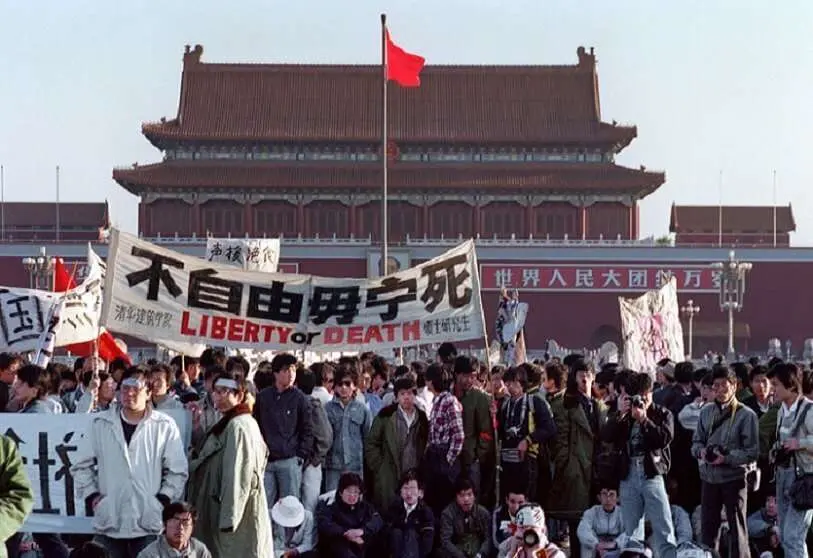Delete at all costs the memory of Tiananmen

Knowing how many people died on June 4, 1989 in Tiananmen Square in Beijing is impossible. It could have been 200, 700, 1,500 or even more than 2,000, according to the various testimonies gathered at the time by those who were in the front line. But, it has become a state secret jealously guarded by the authorities of China, so that the memory is diluted towards those who on that day wrongly believed that the avenues of freedom had been opened.
The young Chinese generation is unaware of the massive popular explosion and the relentless repression with which the Chinese regime decided to uproot what it considered, surely with good reason, to be the root of the possible destruction of its system. Neither the textbooks in educational establishments nor the archives offered to the public in the most diverse institutions contain the slightest reference to it, but those who violate the express prohibition on counting it risk harsh prison sentences. Nowhere in China is it possible, therefore, to find any memory of that massacre. Until now, the only place where the victims were remembered was Hong Kong, whose Victoria Park was filled with candles and songs on this occasion, at a vigil that has been held continuously for the last thirty years. The rest of the year, anyone who wanted to contemplate photos, objects, testimonies and memories of those days in 1989 could go to the small Museum of June 4th, a venue of barely one hundred square metres, erected and maintained by some of those who escaped and took refuge on the island.
Under the pretext of the coronavirus pandemic, that tradition has been interrupted this year, and it is more than likely that it will not be resumed. China's National People's Congress has passed a new security law for Hong Kong, bypassing the former British colony's own parliament. The text effectively removes from the democratic system certain freedoms that Hong Kong should enjoy for the fifty years following 1997, the date of the British colony's return to China. The rights of expression and demonstration are therefore unified with those already enjoyed by the remaining 1.35 billion Chinese, in other words, none at all.
The ongoing cold war between China and the United States is Beijing's excuse to deploy all kinds of movements to ensure its security. By virtue of such a sacrosanct principle, Hong Kong cannot be a stone in the shoe, either because of the incompatibility of its system of democratic freedoms with that of a single party and eternal leader, or because its more than seven million citizens are a priori suspected of collaborating with the potential external enemy.
Chinese President Xi Jinping has already warned the UK to "step back from its interference" in China's internal affairs, referring to Prime Minister Boris Johnson's offer to provide British citizenship and even residency to Hong Kongers who do not wish to see their rights and freedoms undermined, thanks to the presumably violent and ruthless application of this new National Security Act. The extension of the "British overseas passport" to all the inhabitants of its former colony has irritated Beijing, which has, moreover, included for the first time in its desire for reunification with the island of Taiwan the possibility of doing so by force.
The concentration of several thousand Chinese soldiers in the surroundings of Hong Kong, and the threats by the Beijing leaders to order them in to "pacify" possible revolts, has sown fear. Consulates and other international representative offices are receiving a flood of requests for information to leave the island, a sign that the people of Hong Kong are not looking forward to heavenly happiness.
Tiananmen will no longer be a memory. If its subjugation is accelerated, perhaps Hong Kong's will also be diluted in China's new normality.

